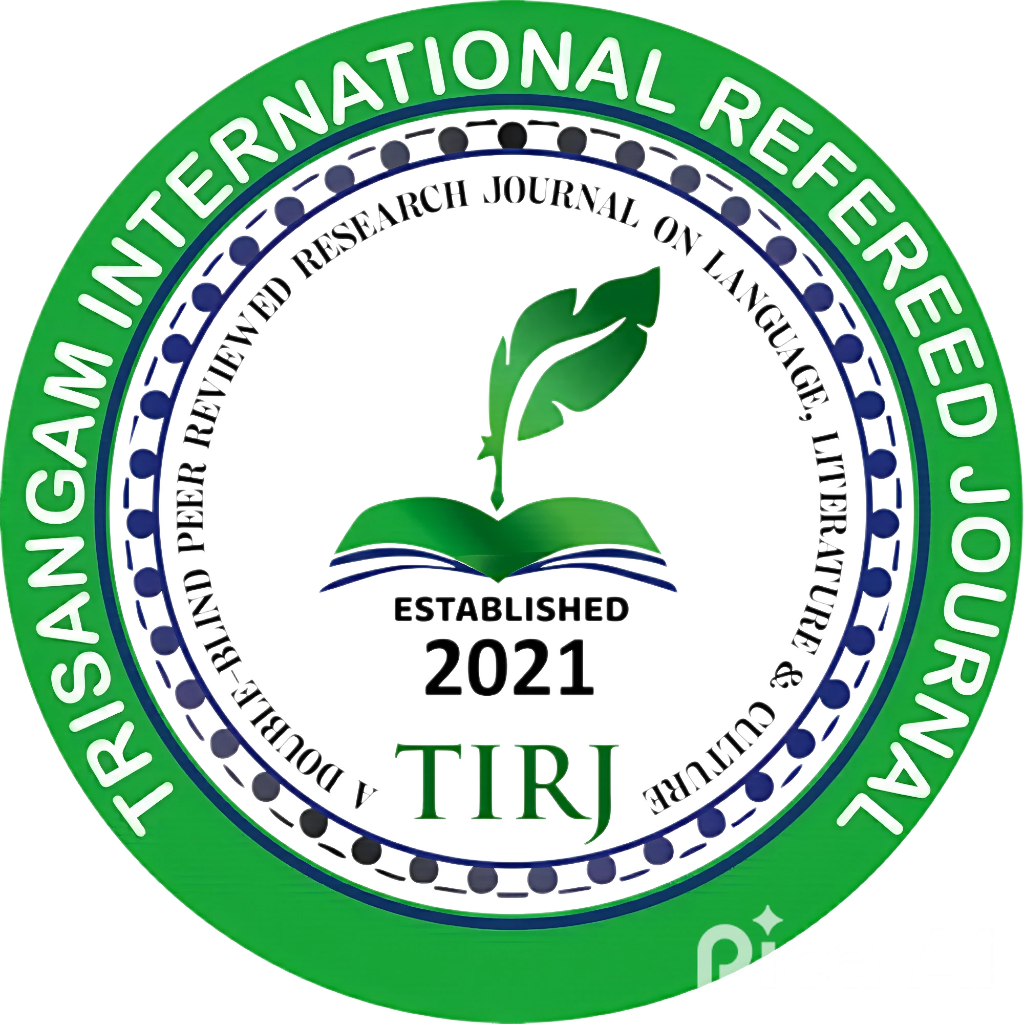Puran Prayoge Manoj Mitra : ‘Ashwathama’ O ‘Takshak’/ পুরাণ প্রয়োগে মনোজ মিত্র : ‘অশ্বত্থামা’ ও ‘তক্ষক’
Keywords:
- Myth,
- Puran,
- Ashwathama,
- Takshak,
- Salyaparva,
- auptikaparva,
- Mahabharata,
- Naxalite Movement,
- Kripacharya,
- Kritavarma
Abstract
The term ‘Puran’ is commonly understood in Bengali as synonymous with ‘Myth’. While traditional Puranic texts narrate cosmic events and divine conflicts, noted Bengali playwright Manoj Mitra reinterprets these narratives to reflect contemporary socio-political realities. His plays Ashwathama and Takshak exemplify this approach, offering modern perspectives on ancient myths.
Ashwathama, inspired by the Salyaparva and Sauptikaparva of the Mahabharata, parallels the socio-political unrest of the Naxalite movement in Bengal. The play explores the internal turmoil of Ashwathama, whose impulsive violence, manipulated by Duryodhana, mirrors the frustration of Naxalite youth misled by political leaders. His misplaced rage, culminating in the tragic killing of the Pandavas’ sons, reflects the unintended consequences of revolutionary fervour. The characters of Kripacharya and Kritavarma further symbolize contrasting governance ideologies, subtly critiquing state suppression of dissent. Takshak, drawn from the Adiparva of the Mahabharata, delves into the inevitability of death through the story of King Parikshit, who is cursed to die within seven days from a serpent’s bite. Mitra transforms this myth into a meditation on human mortality, as Parikshit, gripped by fear, is guided by his charioteer, Tantripal, to embrace life despite its transience. The play’s philosophical depth reinforces the idea that true fulfilment lies in living wholeheartedly, even in the face of death.
Through these reinterpretations, Mitra skillfully bridges mythology with modern concerns, transforming ancient narratives into powerful reflections on contemporary socio-political struggles and timeless existential questions. Mitra conveys a universal truth- that death is inevitable, but life must be cherished. His use of Puranic narratives thus serves not just as historical storytelling but as a profound exploration of contemporary socio-political issues and eternal human anxieties. His plays not only challenge conventional Puranic interpretations but also offer profound insights into human emotions, governance, and mortality. In this research article, I will attempt to show how he has used mythology in the context of the present era.
Downloads
References
১. ঘোষ, জগন্নাথ, রবীন্দ্রোত্তর বাংলা নাটকের ইতিহাস, প্রজ্ঞাবিকাশ, কল-০৯, পুনর্মুদ্রণ- জানুয়ারি ২০১৫, পৃ. ২৫৭
২. মিত্র, মনোজ, মনোজাগতিক, ‘অশ্বত্থামা ও সত্যসন্ধান’, দে’জ পাবলিশার্স, কলকাতা- ৭৩, প্রথম প্রকাশ, ২০২২, পৃ. ৮৬-৮৭
৩. মিত্র, মনোজ, নাটক সমগ্র (২), মিত্র ও ঘোষ পাবলিশার্স প্রা: লি:, কলকাতা‐ ৭৩, পঞ্চম মুদ্রণ‐ ১৪২২, পৃ. ৫৫
৪. তদেব, পৃ. ৫৮
৫. তদেব, পৃ. ৬৮
৬. তদেব, পৃ. ৬৯
৭. তদেব, পৃ. ৭১
৮. তদেব, পৃ. ৫৮
৯. তদেব, পৃ. ৭৯
১০. তদেব, পৃ. ৬৫
১১. তদেব, পৃ. ৭৫
১২. তদেব, পৃ. ৭৯
১৩. তদেব, পৃ. ৭৯
১৪. মিত্র, মনোজ, নাটক সমগ্র (৩), মিত্র ও ঘোষ পাবলিশার্স প্রা: লি:, কলকাতা‐ ৭৩, পঞ্চম মুদ্রণ‐ ১৪২২, পৃ. ৪৩৫
১৫. তদেব, পৃ. ৪৩৮






